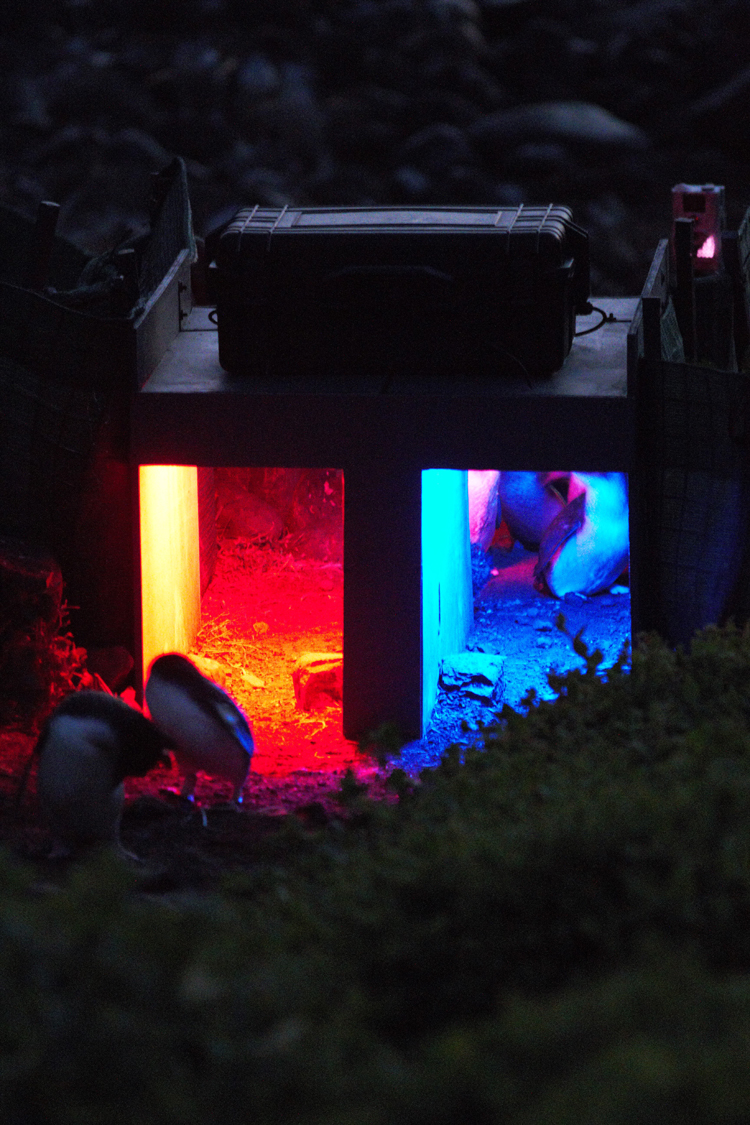Wildlife watching is an emerging ecotourism activity around the world. In Australia and New Zealand, night viewing of little penguins attracts hundreds of thousands of visitors per year. As penguins start coming ashore after sunset, artificial lighting is essential to allow visitors to view them in the dark. This alteration of the nightscape warrants investigation for any potential effects of artificial lighting on penguin behavior. It was experimentally tested how penguins respond to different light wavelengths (colors) and intensities to examine effects on the colony attendance behavior at two sites on Phillip Island, Australia. At one site, nocturnal artificial illumination has been used for penguin viewing for decades, whereas at the other site, the only light is from the natural night sky. Light intensity did not affect colony attendance behaviors of penguins at the artificially lit site, probably due to penguin habituation to lights. At the not previously lit site, penguins preferred lit paths over dark paths to reach their nests. Thus, artificial light might enhance penguin vision at night and consequently it might reduce predation risk and energetic costs of locomotion through obstacle and path detection. Although penguins are faithful to their path, they can be drawn to artificial lights at small spatial scale, so light pollution could attract penguins to undesirable lit areas. When artificial lighting is required, it is recommended keeping lighting as dim and time-restricted as possible to mitigate any negative effects on the behavior of penguins and their natural habitat. informacion[at]ebd.csic.es Rodríguez et al (2018) Penguin colony attendance under artificial lights for ecotourism. J Exp Zool https://doi.org/10.1002/jez.2155


 Las altas temperaturas están provocando que las lagunas y las marismas de Doñana pierdan agua rápidamente
Las altas temperaturas están provocando que las lagunas y las marismas de Doñana pierdan agua rápidamente




